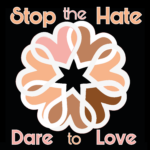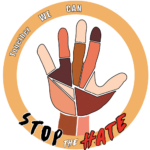
The non-governmental organization dedicated to the research, defense and promotion of human rights Human Rights Watch, denounced that META, the social networking service, systemically censors Palestinian content or content that supports the country, after the war between Israel and the extremist group Hamas.
Meta's content moderation policies and systems have increasingly silenced voices in support of Palestine on Instagram and Facebook in the wake of hostilities between Israeli forces and Palestinian armed groups, Human Rights Watch said in a report published last year. December 20th.
The 51-page report, "Meta's Broken Promises: Systemic Censorship of Palestinian Content on Instagram and Facebook," documents a pattern of improper removal and suppression of protected speech, including peaceful expression in support of Palestine and public debate about Palestinian human rights.
Human Rights Watch found that the problem arises from flawed metapolicies and their inconsistent and erroneous implementation, overreliance on automated tools to moderate content, and undue government influence over content removal.
“Meta's censorship of content supporting Palestine adds insult to injury at a time of unspeakable atrocities and repression that already stifle Palestinian expression,” said Deborah Brown, acting deputy director of technology and human rights at Human Rights Watch. .
Brown said that social networks are an essential platform for people to bear witness and speak out against abuses, so Meta's censorship contributes to erasing the suffering of Palestinians.
The organization highlighted that it reviewed 1,050 cases of online censorship in more than 60 countries, and although they are not necessarily a representative analysis of censorship, the cases are consistent with years of reporting and advocacy by Palestinian, regional human rights organizations. and international reports detailing Meta's censorship of content that supports Palestinians.
Following the Hamas-led attack on Israel on October 7, 2023, which killed 1,200 people, mostly civilians, according to Israeli officials, Israeli attacks on Gaza have killed about 20,000 Palestinians, according to the Health Ministry. Loop.
Added to this, illegal Israeli restrictions on humanitarian aid have contributed to an ongoing humanitarian catastrophe for Gaza's 2.2 million residents, almost half of whom are children.
Human Rights Watch said it identified six key patterns of censorship, each of which is repeated in at least 100 cases: removal of content, suspension or deletion of accounts, inability to interact with content, inability to follow or tag accounts, restrictions in the use of features such as Instagram/Facebook Live and “shadow ban”, a term that denotes a significant decrease in the visibility of an individual's posts, stories or accounts without notification.
In more than 300 cases, users were unable to appeal the deletion of content or accounts because the appeal mechanism did not work correctly, leaving them without effective access to a remedy, the organization reported.
In turn, he highlighted that, in hundreds of documented cases, Meta invoked its "Dangerous Organizations and Individuals" policy. (DOI), which fully incorporates the designated lists of ?terrorist organizations? of the United States. In that sense, he noted that Meta has cited these lists and applied them widely to restrict legitimate speech about hostilities between Israel and Palestinian armed groups.
He also said Meta misapplied its policies on violent and graphic content, violence and incitement, hate speech, nudity and sexual activity; In addition, it has inconsistently applied its "newsworthiness allocation" policy, removing dozens of pieces of content that document Palestinian injuries and deaths and that have news value.
In a 2021 report, Human Rights Watch documented Facebook's censorship of debate on rights issues relating to Israel and Palestine and warned that Meta was "silencing many people arbitrarily and without explanation."
By 2022, Meta has committed to making a series of changes to its content moderation policies and enforcement. However, he said, almost two years later, Meta has not met its commitments and the company has not met its human rights responsibilities, Human Rights Watch concluded.
“Instead of tired apologies and empty promises, Meta should demonstrate that it is serious about addressing Palestine-related censorship once and for all, taking concrete steps toward transparency and remediation,” Brown said.


This publication was supported in whole or part by funding provided by the State of California, administered by the CaliFornia State Library.

You may be interested in: Volunteer Service Award, honors the effort and dedication of two women


